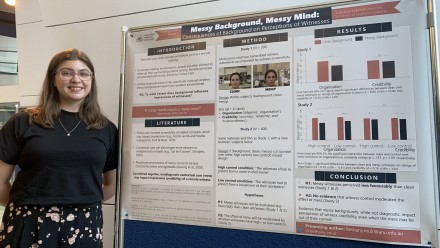A social divide is emerging. Here's how to keep it together
By Professor Kate Reynolds
There is a new divide in Australian society; the vaccinated versus the non-vaccinated.
Some countries are already extending privileges such as travel and dining out to people who have been vaccinated.
That group will also have new freedoms in New South Wales, with the option in some local government areas to meet in groups up to five in the open air.
The social connection and well-being benefits are welcomed by many.
But are there other costs to offering freedoms for some and not others, especially when many have not as yet had the option to join?
There are obvious surveillance issues as it is difficult to know from afar who has a "star upon thars".
But there are other concerns based on what we know drives compliance.
Given not everyone has had the option to get vaccinated, such freedoms for the "lucky few" could create a sense of unfairness, resentment and reduce confidence in government and health experts.
This public confidence is fundamental to keeping vaccination rates up.
There is the risk that different rules for different groups of people in the short term could increase the risks for all of us in the long term.
How do we maintain compliance with health behaviours and increase vaccination rates?
Across the social and behaviour science there is consensus that these five things matter:
Legitimacy of the request: Is it appropriate and do we trust the source?
Political leadership, health expertise and the scientific modelling are critical to this legitimacy.
The result is persuasion that brings intrinsic motivation and self-reinforcing behaviour even over the long haul.
Social norms: Are others doing what they are meant to do? A focus on people doing the right things is critical as it shapes the norm and our behaviour - we are influenced by others.
Efficacy: Are we able to do the behaviours and do we think they will have an impact? This involves enabling people to do the right thing through financial and other supports. There also needs to be evidence that people's efforts are worthwhile.
Empathy: Do we care about those around us and in the community? There is a need for leadership to craft a shared sense of "us" and model empathy through thanking the community and recognising efforts and difficulties.
Coercion: Are there real consequences for non-compliance? These reinforce the legitimacy of the request, the social norms and the importance of empathy. Relying on these methods though is costly because they require surveillance and enforcement; "boots on the ground".
Drawing on these factors for success, it is possible to assess the public official responses from different states so far and to inform what should happens next.
Which political leaders are relying too much on the "coercion message" rather than strengthening the conditions for legitimacy, trust and persuasion? Is empathy on display? Is there a focus on people doing the right things or "bad behaviour"? All our futures depend on getting this right so we all must take an interest in how those making the decisions are tracking.
One thing is clear, moving too early away from a shared identity and us "all being in this together" to special freedoms for the "lucky few" is risky. This will dilute shared social norms, because some people can meet and congregate and for others this is forbidden.
More importantly the sense of unfairness, could reduce confidence in government and legitimacy. Our research conducted through 2020 showed such confidence is a major driver of both health behaviour compliance and vaccination willingness.
The response to COVID-19 is a group, or herd, problem and it has to be addressed at the whole group level.
Until we all have a chance to join the new vaccinated in-group, new social divides could erode the confidence in leadership that has underpinned successes to date.
This article first appeared in the Canberra Times.












